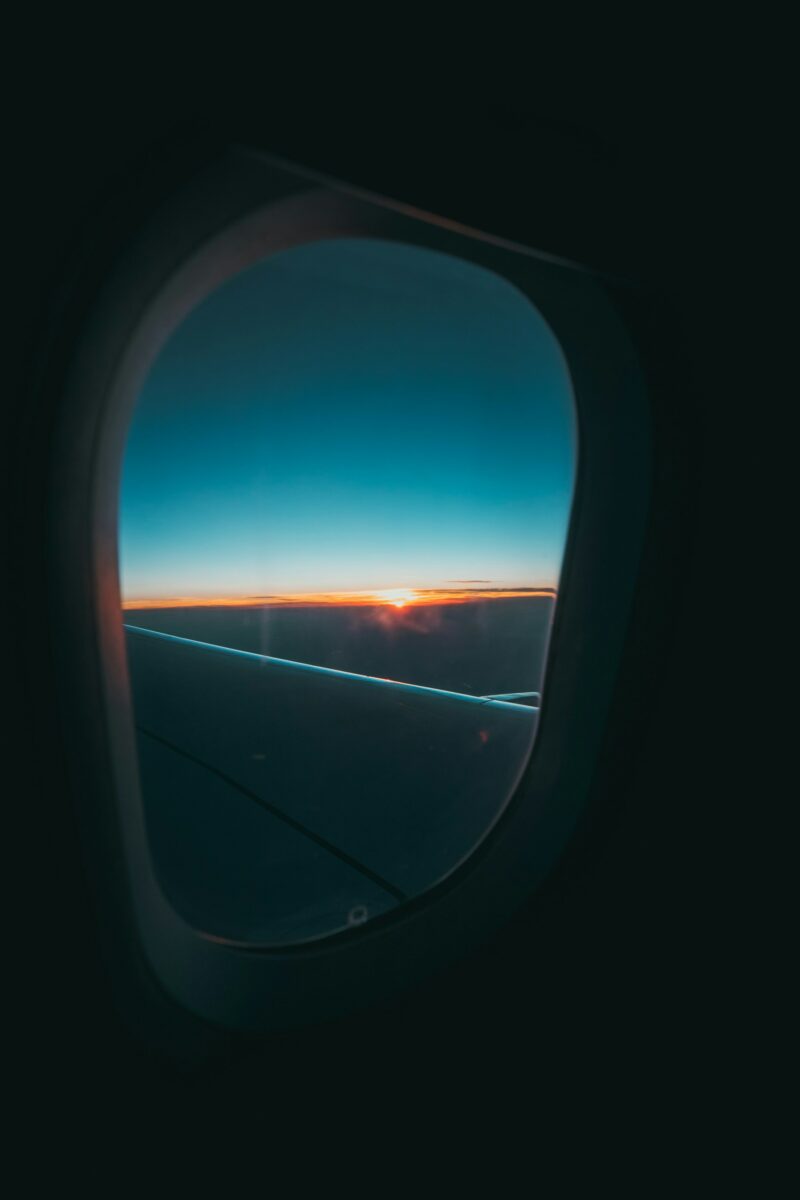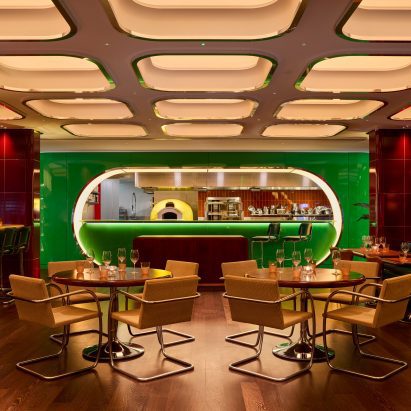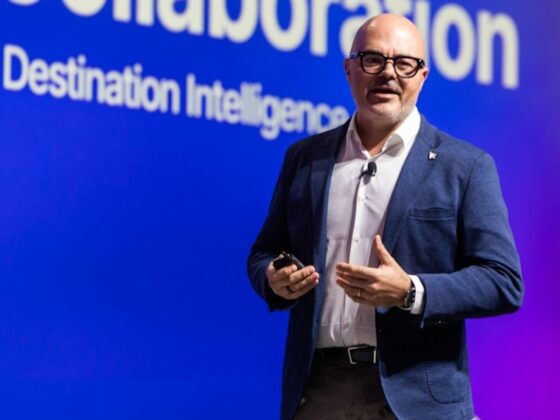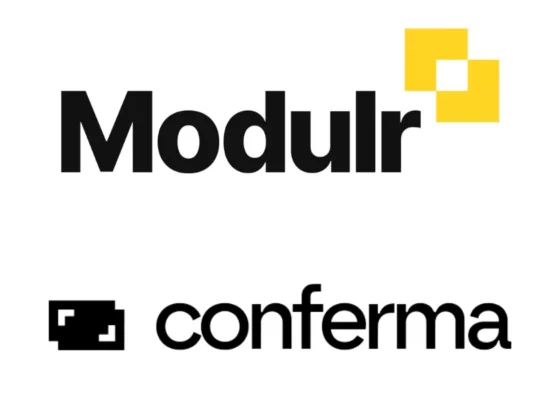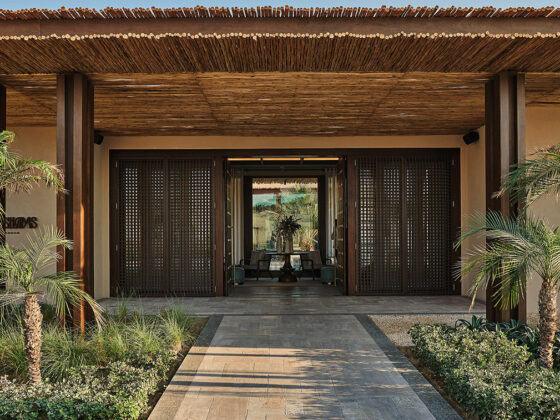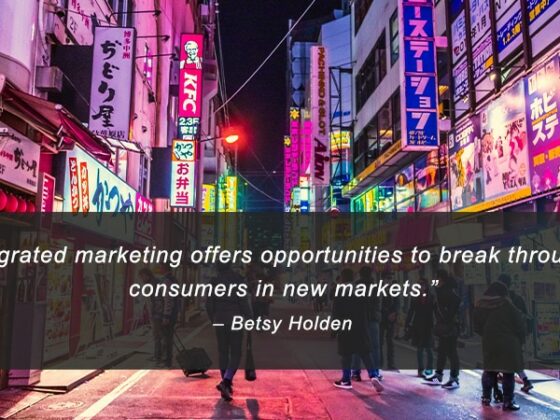In an enchanted atmosphere, where the placid waters of Lake Garda merge with the majestic surrounding mountains, stands the emblem of refined hospitality: Garda Hotels Italia (GHI). We had the privilege of chatting with Lorenzo Casagrande, the Web Marketing and Sales Manager of this renowned hotel group, who, with his passion and expertise, has guided its growth and transformation over the years.
B: Lorenzo, can you tell us a little bit about yourself and the journey that led you to Garda Hotels Italia? Also, considering your background in the hotel industry and presence on Lake Garda, what are your company’s main values and key objectives?
L: My career in hospitality started very early, at the age of 15, working as a kitchen assistant during summer school breaks. Over time, I tried various roles, from night porter to waiter, hotel secretary, and head of reception, until I became hotel manager. This path allowed me to develop a strong passion for sales and to acquire skills in online commerce, thanks in part to my experience with Best Western in the 1980s, when the concept of online sales was still in its infancy in Italy, and the online travel agencies didn’t exist.
The management team from Garda Hotels contacted me while I was working in Trentino and proposed to relaunch and digitize the group of 5 hotels on Lake Garda. The main objective was to reduce third-party bookings and favor the direct ones, which were more profitable. We increased traffic and direct conversions on the site, reducing dependence on OTAs and Tour Operators. In addition, we unified the hotels under the GHI (Garda Hotels Italia) brand, creating a common identity with the “Lake View Holiday” theme since all hotels offer a lake view.
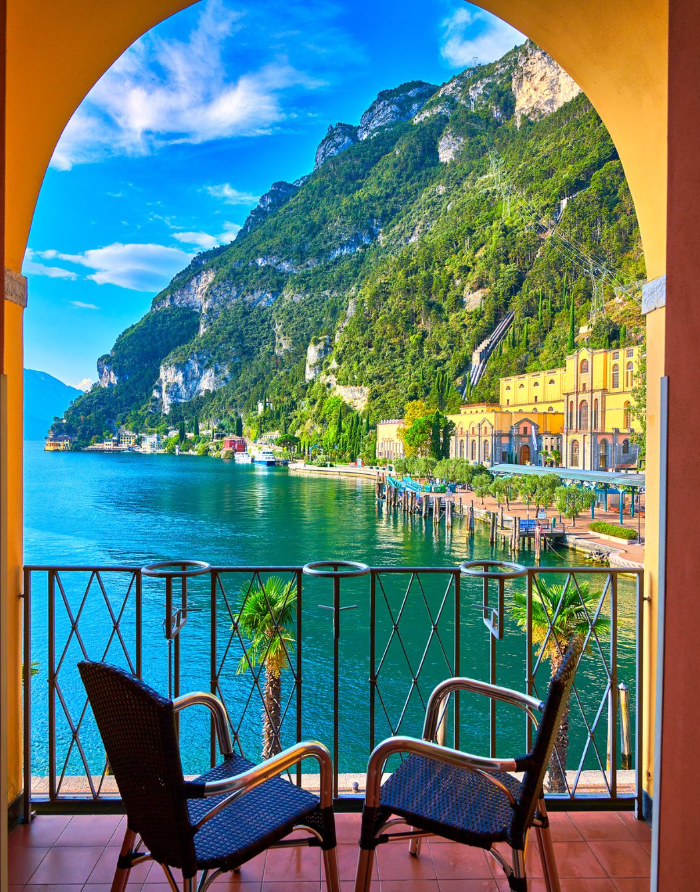
R: Garda Hotels places great emphasis on customer care, continuous improvement of services, and offering the best value for money. How do you materialize these values in your daily operations?
L: Every year, we invest in infrastructural and operational improvements to enhance the customer experience before, during, and after their stay. For example, the Food & Beverage sector offers a variety of options to meet all dietary needs, from those with celiac disease to those with intolerances, with a focus on product quality.
In addition, we strive to improve each stage of the customer’s “journey.” For the pre-stay phase, we have created a targeted communication plan to make the customer feel accompanied until his or her arrival at the hotel. After the stay, we ask for customers’ feedback through specially designed questionnaires to further understand and improve their experience.
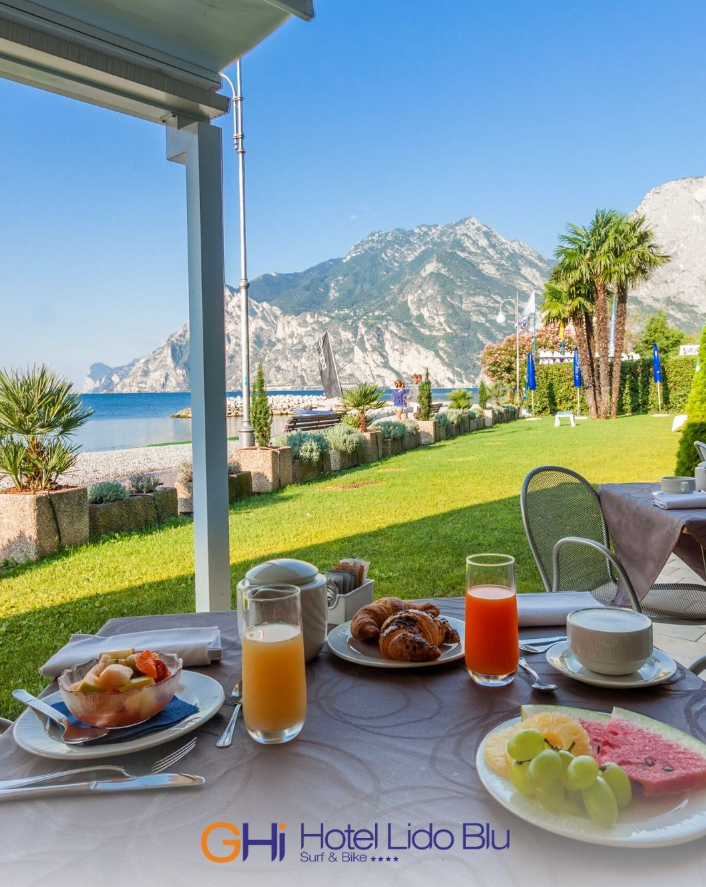
R: Environment and sustainability initiatives are increasingly important in the hospitality industry. What sustainable practices do you implement in your hotels to reduce environmental impact and promote more responsible development?
L: With historical roots deeply embedded into our properties, we face some challenges in implementing a complete sustainability cycle. However, we have implemented several initiatives to reduce our environmental impact. For example, we use specific items in the rooms that minimize waste and reduce the use of disposable products.
We promote local excellence, especially in wines and dishes, always trying to meet our customers’ needs. We use printed paper as little as possible, introducing QR codes for communications and price lists. We have also implemented waste separation, raising awareness and educating customers to separate waste properly inside and outside their rooms.
To reduce plastic, we have eliminated plastic bottles in minibars and replaced them with glass and cans. We have also reduced the use of disposable and packaged products, thus responding to customer reports.
R: What is the role of technology in the daily operations of Garda Hotels? How do you use technology to improve the customer experience and optimize internal processes?
L: We have introduced handhelds for restaurant orders, improving service efficiency. We use Wi-Fi to convey messages and information to customers, and we are considering adopting a digital concierge to facilitate communication between the company and customers.
We are supportive of any tech solutions allowing us to focus more on other aspects of the service. For example, what I envision in the future for our hotels (which is already happening in many parts of the world) is a possible integration of tablets and QR codes at restaurant tables, reducing the waiter’s touch points and giving the customer more flexibility. This will allow customers to order, change orders, and pay independently, improving human interaction when the waiter serves food, eliminating the stress of service, and creating a more personalized and enjoyable experience.
R: Online reputation is crucial in the hotel industry. How important do you consider your online reputation management to be, and what strategies do you employ to maintain positive feedback from your guests?
L: We actively manage the online reputation of our five hotels and restaurants through our marketing department, responding to all reviews. The responses are designed to convey marketing messages that enhance the direct booking experience. In our messages, we recommend avoiding OTA channels precisely because, in this way, we can learn more about the customer and their needs.
We understand the importance of good reviews in increasing occupancy and revenue. Negative reviews are immediately reported to department heads and management to analyze the incident and formulate the most appropriate response. Of course, our goal is to anticipate and resolve customer problems before they leave a negative review, as customer satisfaction is paramount to us.
R: Garda Hotels has implemented TrustYou’s Customer Experience Platform to manage guest reviews. What were the main reasons behind this choice? Did you notice any tangible improvements in your guests’ overall experience after adopting this tool?
L: Managing a high volume of reviews was a challenge in terms of time and organization. Adopting TrustYou has allowed us to automate this process, making it quick and effective and customizing it for each customer. The monthly reports produced are sent to the managers of each hotel, allowing them to address issues highlighted by the reviews directly at the property.
We have absolutely noticed significant improvements: by monitoring each department, we can take timely actions to improve, eliminate, or correct any problems, thus ensuring service that always meets our customers’ expectations.
R: What new trends in hospitality are you following closely, and how are you adapting to stay competitive in a constantly changing market?
L: Artificial intelligence is one of the most talked-about topics currently. We, as a group, are also gradually implementing AI in many of our processes, such as the responseAI function to respond to our customers’ reviews. The hope is that current processes and programs can be further improved and integrated through AI in the future. However, although AI is valuable support for streamlining many processes, I do not believe it will replace the human factor in the near future.
Another trend we are following closely is marketing automation, which is essential for managing all marketing processes more efficiently. We are implementing these technologies to streamline operations and improve the customer experience, keeping us competitive in an ever-changing market.
An Interview by RES – Hospitality Business Developers

